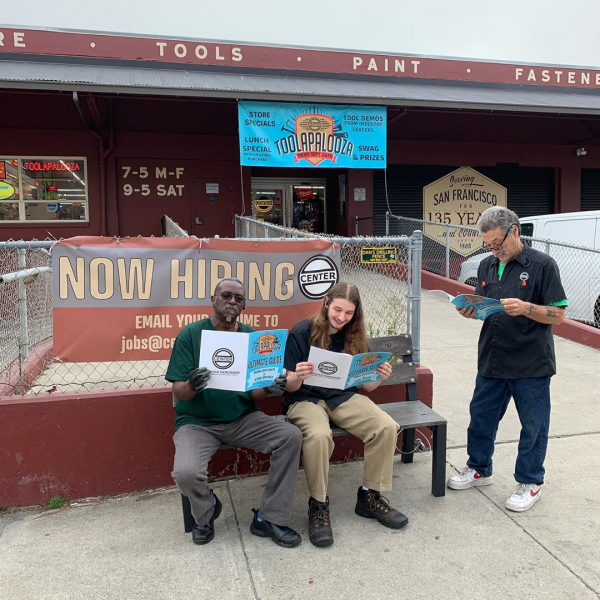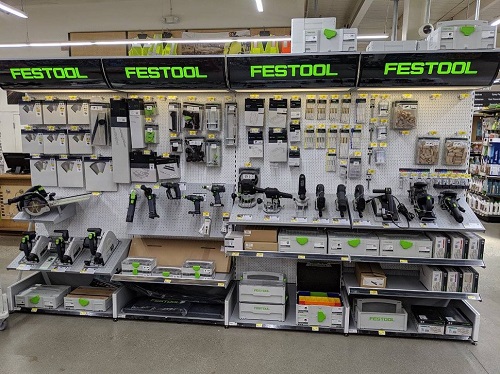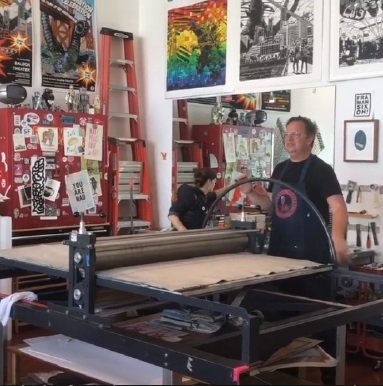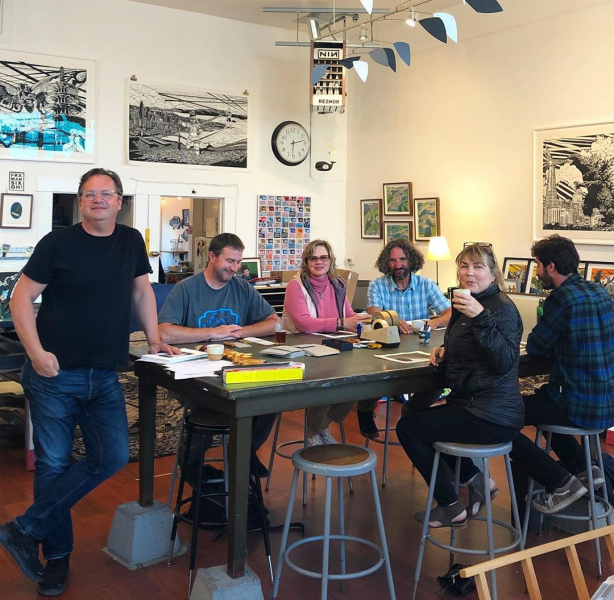- Categories:
Non-Bookstore Indie Retailers Offer Transferable Ideas for Bookstores
- By Liz Button
Bookselling This Week recently spoke with two non-bookstore independent retailers who offered tips for booksellers and other independent retailers trying to stay connected to their customers in-store and online, while also participating in the greater local business community.

Jamie Gentner, owner of Center Hardware & Supply Co., Inc., a hardware store in San Francisco, California, and artist Eric Rewitzer, who co-owns 3 Fish Studios, a printmaking studio in San Francisco, with artist Annie Galvin, both recently served as panelists for the “Actionable Ideas from Indie Retail” session at last month’s Northern California Independent Booksellers Association (NCIBA) conference, where they discussed how they stay relevant and nimble in today’s challenging retail environment.
As a hardware store owner, Gentner never thought she would be hosting in-store events for construction crews, offering training sessions with power tool companies for contractors and DIY builders, and staging all-out tool-themed festivals. But these days, she said, every business decision she makes is based on whether it will bring people to the store.
“We’re all in the events business now. The only thing that sets us apart from these online presences are our personalities and our actual spaces, so if we’re not leveraging those two things, we basically could be anybody. That’s what sets you apart,” she said. “Our biggest strength right now is our independence and our flexibility to decide what’s best for our community and what’s best for our customers, and to change those things as we go according to the customers’ needs and wants. We just need to think outside the box.”

Gentner said the store’s biggest, most well-attended in-store event was a recent daylong Toolapalooza festival, which brought in almost 1,000 people to meet with representatives from 34 national brands in one place at the same time. The event, which Gentner described as a “big party day,” featured power tool drag races, product demonstrations, and barbecue.
“We realized we were the only space in San Francisco that could do that, so we were like, well, we’re going to do that,” said Gentner. “The focus of our events is always sales but also increasing recognition of the business. Focusing only on sales is kind of gross, I think, and those relationships in the community are so important, so even though we would like sales to be attached to events like these, they are not marketed that way.”
According to Gentner, the margin on tools is very small, so hardware stores have to make up for that in the volume they sell. As a product, tools also lack the same sort of emotional pull and sales narrative books can have, so Center Hardware & Supply builds up goodwill in other ways, laying the foundation for those personal relationships with customers that sales grow out of.
“We create our goodwill by not selling garbage projects. We sell tools that perform on the job site; we offer local brands; we offer certain brands exclusively. That’s become our reputation, that we know what we’re talking about. We talk to woodworkers and metal workers and ask them, what are you actually working with?” said Gentner.
Success in today’s retail environment, said Gentner, all comes down to promoting that spirit of connectivity with customers and with the community.

“It only works if you get the chance to talk to people; if they don’t come in, then you can’t talk to them. We do everything we can to bring in people so that we have the opportunity to talk to them. It all grows out of those conversations, basically,” said Gentner.
Rewitzer of 3 Fish Studios told BTW that he and Galvin make a point to interact with their customers in the local San Francisco community in a range of ways, including putting out an e-mail newsletter to customers for the past 13 years.
“The newsletter has allowed us to build our voice, a voice that has since translated well into our social media efforts,” said Rewitzer. “Our reach is roughly 25,000 with our combined e-mail list and social media followers. Customers routinely let us know that they enjoy getting our newsletter and posts, and we enjoy writing them.”
3 Fish also supports other local businesses and community spots as part of their customer service practice by making sure to recommend local places for lunch, or a cup of coffee, to people who stop in. Rewitzer said they also try to provide the kind of customer service that creates a positive experience for everyone by welcoming each person who walks in the store.
“We offer them a coffee or water, which when accepted, allows us to get to know more about them. We’re often able to find out why they chose to visit, which creates another opportunity for us to discuss the kind of work we do,” he said.

While 3 Fish is an art gallery and a print shop where he and Galvin sell their own art, said Rewitzer, they also frequently feature shows by other local artists, musicians, and writers. Rewitzer suggested that booksellers highlight local talent in whatever way they can so customers are aware of the creative energy that exists in their area.

